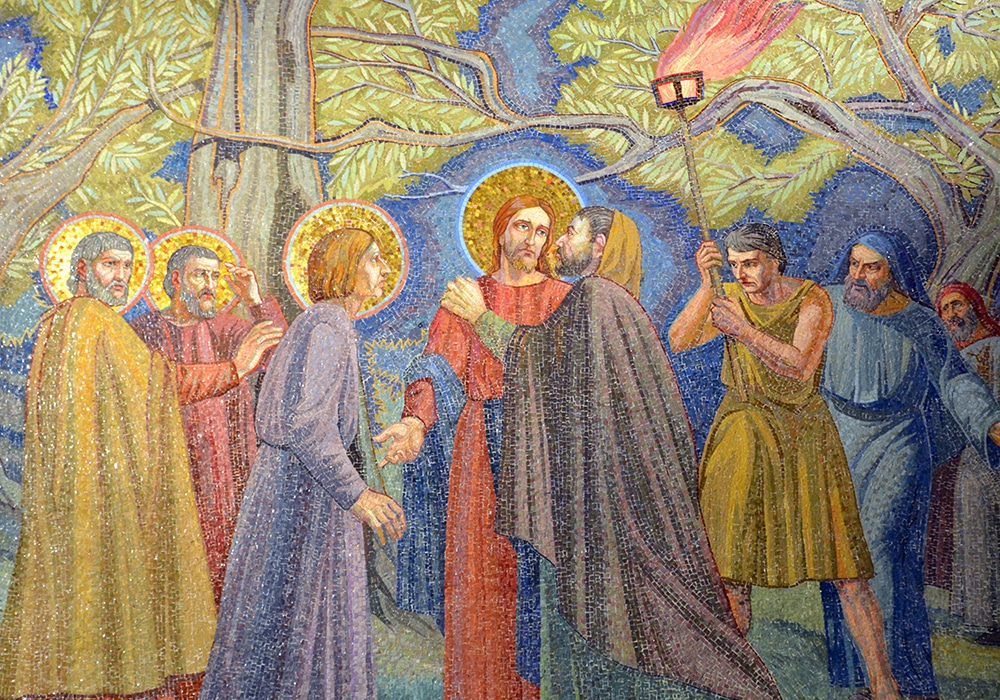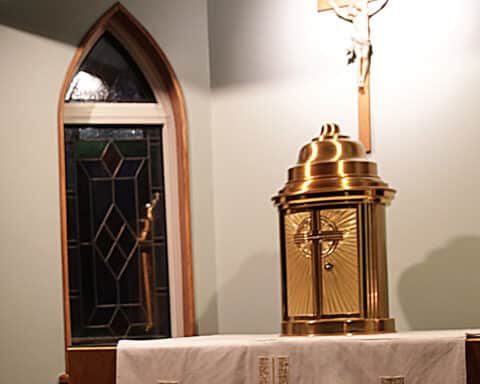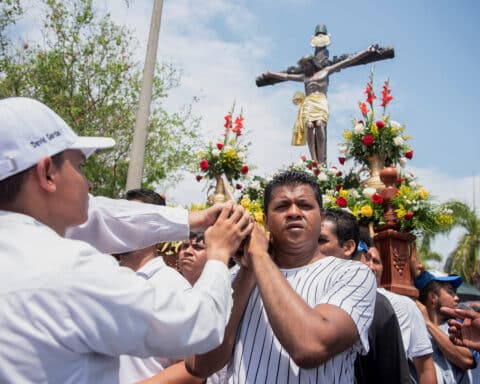Scripture tells us that the chief priests and the scribes had been looking for a way to put Jesus to death. Herod tried to kill Jesus when he was just an infant and ordered the massacre of the Holy Innocents (cf. Mt 2:16-17). When he began his public ministry, after preaching in Nazareth, townspeople wanted to throw Jesus off a cliff (cf. Lk 4:29-30). And when he called himself God, people picked up stones ready to kill him (cf. Jn 8:59).
This is not an exhaustive list. There are numerous times where people were ready to kill Jesus. But they didn’t manage. Not until Jesus was betrayed by Judas.
Why? Well, for one, Jesus spoke of his death as taking place at an appointed time. John’s Gospel reports, “They tried to arrest him, but no one laid a hand upon him, because his hour had not yet come” (Jn 7:30). So the betrayal of Jesus could not occur until the appointed time.
When did that time come?
Scripture reports that the feet of Jesus were anointed in Bethany, before the celebration of Passover. Judas objected to the use of the costly spikenard, saying: “Why has there been this waste of perfumed oil? It could have been sold for more than three hundred days’ wages and the money given to the poor” (Mk 14:4-5). Jesus rebuked Judas and explained that the woman had foreshadowed his coming death by anointing his body.
After that anointing, Judas Iscariot went to the chief priests to arrange the handing over of Jesus, for which he was paid 30 pieces of silver. The 30 pieces, a relatively small amount, show us that Jesus’ life was worth the same as a slave (cf. Ex 21:32). Moreover it fulfills the prophecy of Zechariah: “Then the Lord said to me, Throw it in the treasury — the handsome price at which they valued me. So I took the thirty pieces of silver and threw them into the treasury in the house of the Lord” (Zc 11:13).
Tradition holds that Judas went to betray the Lord in secret, under the cover of darkness. The arrest of Jesus likewise took place in the Garden of Gethsemane at night. Compare that to Nicodemus’ night time visit to speak with Jesus (cf. Jn 3:2). The obscurity of the shadows contrasts with Jesus, who revealed himself to be the light of the world.
The Church commemorates the betrayal of Jesus by Judas in a special service called Tenebrae, the service of the shadows. Tenebrae, a Latin word, means darkness. Customarily, at Tenebrae, as the various lessons of Scripture are sung and proclaimed, candles are extinguished one by one, until the assembly is left in darkness. The sorrowful tone of the Lamentations that are performed amplifies the feeling of gloom.
In fact, the last candle, representative of Christ, is not snuffed out, though. Rather, the candle is carried out of the church, symbolizing Jesus’ death and his descent into hell. When the final lighted candle leaves the sanctuary, a loud, violent noise follows. The strepitus (Latin for “boisterous noise”) symbolizes the earthquake, which took place at the moment of Christ’s death. (In my religious community, the brothers conduct this noise so successfully that people often jump and gasp at the clamor.) In our practice, observed in many places, the ceremony concludes as the Christ candle returns, symbolizing the coming resurrection.
Spy Wednesday is a day filled with many questions. Why did Judas betray Jesus? Why did he settle for such a small amount? Why was he vulnerable to Satan’s influence? And despite these and other sorrows, the day doesn’t end in shadows, because betrayal isn’t the end of Spy Wednesday. Easter Sunday is.
Father Patrick Briscoe, OP, is editor of Our Sunday Visitor. Follow him on Twitter @PatrickMaryOP.





